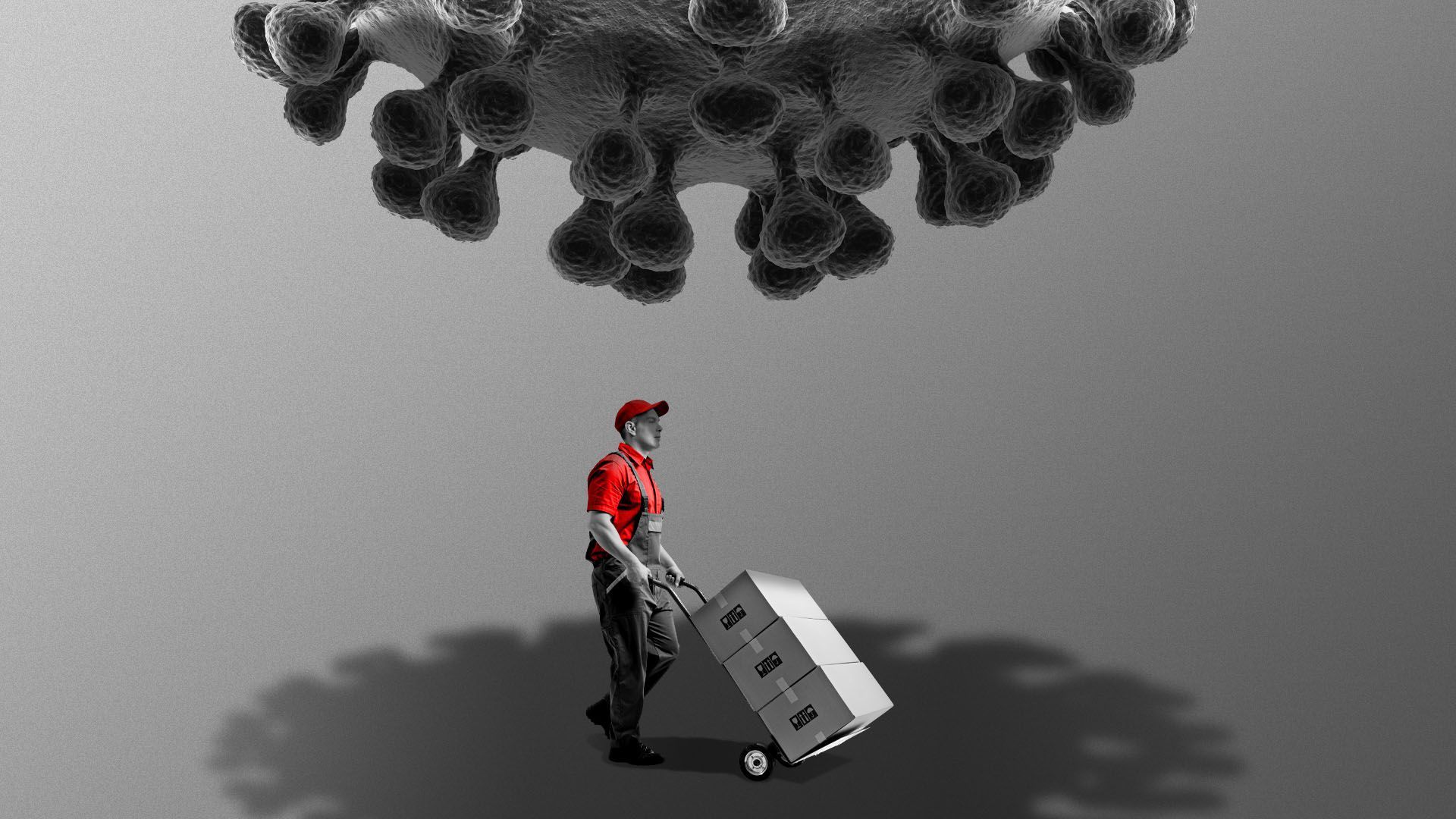Determining which essential workers to vaccinate first
Add Axios as your preferred source to
see more of our stories on Google.

Illustration: Sarah Grillo/Axios
It's generally agreed that essential workers should be toward the front of the coronavirus vaccine line due to their high risk of infection, but states will soon have to decide how to order different occupations.
Why it matters: Millions of Americans are considered essential workers, but not all of them can be at the front of the vaccine line when there will be such a limited initial supply.
What's happening: "It's been a free-for-all in recent weeks as manufacturers, grocers, bank tellers, dentists and drive-share companies all jostle to get a spot near the front of the line," Kaiser Health News reports.
- "Tough choices lie ahead, such as: Is it more important to prioritize teachers who come into contact with many people each day, or farmworkers, who can't work remotely and provide the country's food?" KHN writes.
Between the lines: States, which will ultimately make prioritization calls, are signaling different priorities.
- Florida Gov. Ron DeSantis has said that after frontline health care workers and nursing home residents, people over 65 and those with significant health conditions will receive vaccines.
- Kentucky Gov. Andy Beshear, on the other hand, said grade school teachers should be next, along with first responders and adults with significant illnesses.
The big picture: It's not just about what occupations should receive priority; disease advocacy groups are also lobbying for their patients to be at the front of the line.
Go deeper: Jumping the line for a vaccine will be pretty easy
